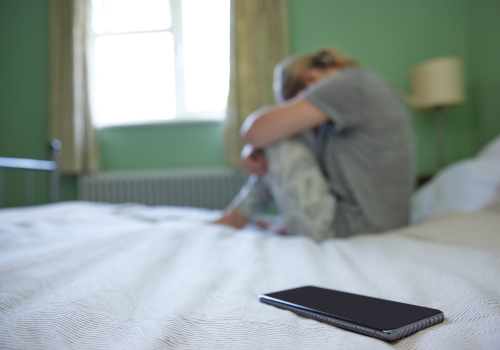Whether it's scrolling through your news feed during lunch or posting the perfect selfie, these platforms have become an integral part of our lives. But have you ever wondered how your social media habits affect your mental health?
The Digital Age's Double-Edged Sword
Technology has undoubtedly made our lives more convenient, but it has also introduced a new set of stressors.Social Media Anxiety Disorder, a relatively new mental health condition, is on the rise, and it's akin to social anxiety disorder. Anxiety disorders are already prevalent in the United States, and this particular subtype is quickly gaining ground.
Symptoms of Social Media Anxiety Disorder
So, how can you tell if you or someone you know is affected by this disorder? Here are some common symptoms to watch out for:- Exaggerated Time Spent: Are you downplaying the hours you spend on social media? It might be a red flag.
- Interrupting Conversations: Do you find yourself compulsively checking your social media accounts during conversations with others? It could be a sign of dependency.
- Diminished Interests: Have your real-world interests taken a back seat to your online life? Losing interest in other activities is a significant warning sign.
- Social Withdrawal: Are you distancing yourself from friends and family in favor of virtual connections?
- Work Distraction: Is social media creeping into your work life, making it hard to concentrate?
- Neglecting Responsibilities: Do you neglect important tasks just to engage in online discussions or post updates?
- Over-Sharing: Feeling an irresistible urge to share every detail of your life on social media platforms can be problematic.
- Anxious Separation: Experiencing intense stress or anxiety when unable to check social media updates for even a short period.
References : https://www.keithmillercounseling.com/social-media-anxiety-disorder/
A recent survey published by the National Center for Biotechnology Information revealed some alarming statistics. Approximately 30% of students using social media spend over 15 hours per week online.
While social media undoubtedly has its benefits, this excessive screen time can lead to a growing concern - social media anxiety disorder.
In this blog post, we'll explore the physical and mental health implications of spending too much time on social media.
Physical and Mental Health Implications of Excessive Social Media Use
1. The Physical Health
Prolonged use of social media platforms can have a significant impact on our physical well-being. Users often find themselves hunched over their devices, scrolling through endless feeds for hours.This unnatural posture can result in eye strain, neck pain, lower back problems, and hand and wrist cramping. In severe cases, it may even contribute to obesity, poor nutrition, and heart disease. It's clear that excessive screen time takes a toll on our bodies.
2. The Mental Health
The consequences of social media overindulgence extend beyond the physical realm. Research suggests a troubling link between excessive screen time and mental health issues.Social media anxiety disorder can contribute to feelings of depression, paranoia, loneliness, and even attention deficit hyperactivity disorder (ADHD).
One of the key culprits behind these mental health challenges is the pervasive culture of comparison on social media.
One of the key culprits behind these mental health challenges is the pervasive culture of comparison on social media.
Platforms like Facebook encourage us to showcase our lives, and we can't help but compare our achievements, appearance, and happiness with others. This constant comparison can breed feelings of jealousy, inadequacy, and depression.
3. The Obsession with Validation
Another facet of social media anxiety disorder is the incessant need for validation. It's not just about compulsively checking notifications and statuses, but also about seeking approval from others.Many individuals feel an overwhelming desire for their posts and updates to receive likes, shares, and comments. When these expectations aren't met, it can trigger a cascade of negative emotions, leading to sadness, loneliness, and potentially even deeper depression.
Navigating Social Media Obsession
It's essential to recognize and address the symptoms of Social Media Anxiety Disorder to maintain a healthy balance between your digital and real-life existence. Here are some steps you can take:
- Digital Detox: Periodically unplug from social media to recalibrate your perspective.
- Set Boundaries: Establish designated times for social media use and stick to them.
- Seek Support: Don't hesitate to talk to a mental health professional if you believe you're struggling with this disorder.
- Diversify Your Interests: Rekindle your passion for hobbies and activities that don't involve screens.
- Reconnect Offline: Invest in your in-person relationships, nurturing bonds with friends and family.
Conclusion
In a world where social media has become an inseparable part of our lives, it's crucial to be aware of the potential consequences it can have on our mental health.Social Media Anxiety Disorder is real, and its symptoms can have a profound impact on our overall well-being. Striking a balance between online and offline life is essential for our overall well-being.
Remember, your mental health is a priority, and it's okay to unplug from the digital world when needed.













Terima kasih kerana singgah ke Blog Sii Nurul. Jika ada sebarang pertanyaan, komen, penambahbaikan, cadangan mahupun pandangan. Boleh tinggalkan jejak anda.